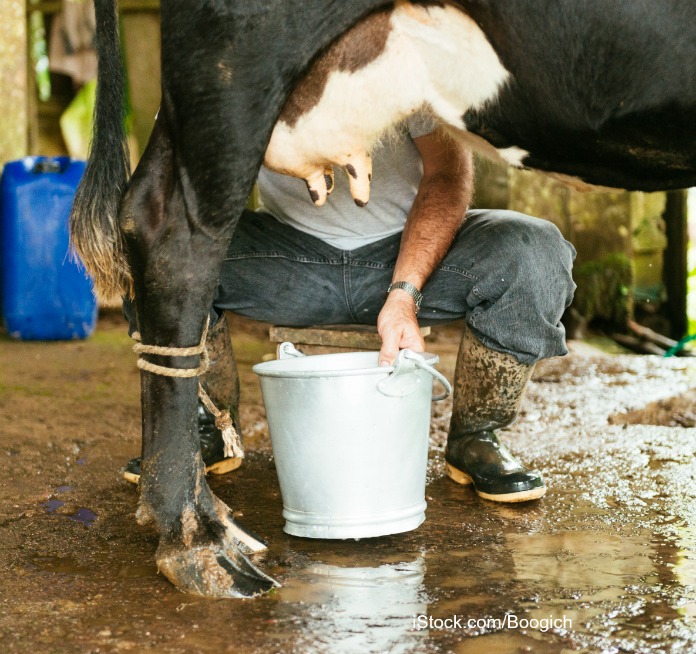The California Department of Public Health (CDPH) has released an investigation about the 2015 Campylobacter outbreak associated with Claravale Farm brand raw milk. In March 2015, the CDPH Infectious Diseases Brand identified three patients who live in Santa Cruz County with Campylobacter infections.

All three patients reported consuming Claravale brand raw milk before they got sick. Eventually, seven total case patients were identified. One lived in Marin County, one in Orange County, and five in Santa Cruz county. Two of those patients were hospitalized.
Illness onset dates ranged from February 16 to March 25, 2017. Campylobacter isolates were collected from three of the patients and analyzed by pulsed field-gel electrophoresis (PFGE). Those isolates all had the same primary enzyme PFGE pattern, indicating that they likely shared a common source. The consumption data and the PFGE results showed that the cases “likely shared Claravale Farm brand raw cow milk as a common route of exposure to Campylobacter.”
The CDPH, the Food and Drug Branch (FDB) of that agency, and the Emergency Response Unit (ERU) started an investigation. They took environmental samples at the facility, sampled product at the retail and consumer level, and initiated traceback of the implicated product.
On March 4, 2015, FDB collected nine bottles of Claravale Farm raw milk from different retail locations in Northern California. The samples were analyzed for E. coli O157:H7 and Campylobacter.
On March 5, 2017, officials inspected the farm. Multiple product samples and environmental samples were collected. The product samples were 11 raw milk product samples that were packaged in consumer bottles and ready for shipment. A total of 106 environmental samples were collected, including fecal samples, one water sample, and 65 environmental swabs from locations in and around the milking barn.
The home of the Marin county case patient had multiple leftover raw milk samples from the period before the patient, an infant, got sick. The baby was fed formula made with Claravale Farm raw milk. The samples were one closed bottle of raw whole milk, one open bottle of whole cow milk, and 250 ml of baby formula made using the raw milk.
Of the 11 product samples collected at Claravale Farm, three cow milk samples and one cream sample were positive for Campylobacter. Those samples had the same PFGE pattern as the isolates taken from the patients. Two of the 65 environmental swabs collected were positive for Campylobacter as well. Those PFGE samples did not match the clinical cases, but according to the report, “the presence of Campylobacter in the milking area indicates that a pathogen was present at the time of inspection and could potentially contaminate any milk products bottled at the facility.” Eight of the fecal samples tested positive for Campylobacter, but the PFGE of those samples also did not match the PFGE of the case patients.
The report states that, “all case patient isolates analyzed had a PFGE pattern matching those found in the finished raw milk products collected at Claravale Farm. This evidence indicated the same strain of bacteria was present in the case patients and finished raw milk from Claravale Farm.”
CDFA issued a Quarantine Order against Claravale Farm on March 21, 2015. This triggered a recall of all raw milk produced there, and the temporary cessation of production at the dairy. The firm conducted fecal testing of the cows and removed those that were infected with Campylobacter. The farm staff was re-trained on cleaning and sanitizing procedures. Three consecutive negative milk samples were submitted to CDFA, and the farm was permitted to resume distribution of raw milk on April 27, 2015.




